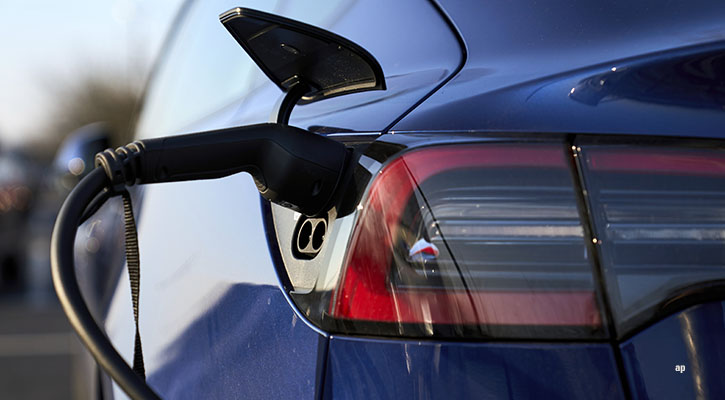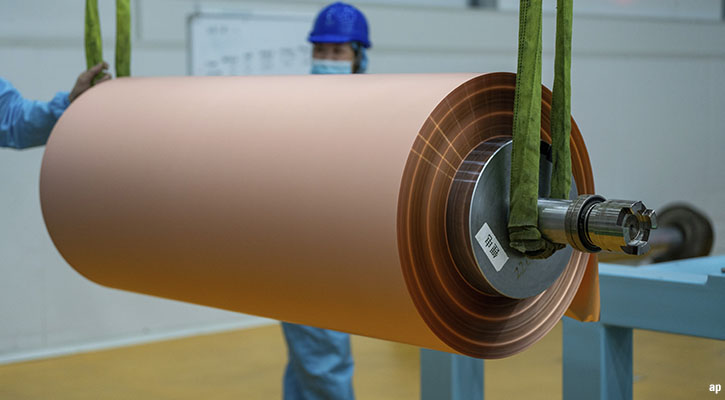
In the automotive industry it’s all about the transition to full electric driving. Tesla was the pioneer, but other major global manufacturers are catching up, some quicker than others. The huge investments in fresh drivetrain technology and the search for scarce basic material mean a dramatic shift in how the industry works and where profits are to be found.
Traditionally, the car manufacturers or original equipment manufacturers (OEMs) were the key players, but in this new environment, the suppliers have become increasingly important – especially when we look at the industry through the lens of the economic moat, Morningstar’s key rating for the vulnerability of stocks to external competition.
Morningstar’s automotive analyst Richard Hilgert does just this in his newest annual Automotive Observer. He says:
“Suppliers often have moats from more than one source in our moat framework, particularly intangible assets and switching costs, based on factors such as the long-term relationships with automakers that lead to win rates of 90% or higher on the next generation of a vehicle model that the supplier already services.””
This is more important to a stable business than investors may realise. In more detail: the development program for a passenger vehicle can take 18 months to three years.
During development suppliers' personnel work alongside the automaker and are often co-located with customers' development engineers. During production life span of around five to 10 years suppliers' engineering personnel again work closely with OEM personnel at their assembly plants and vice versa.
“Because of the long-term, highly integrated nature of OEM/supplier relationships, suppliers to a predecessor vehicle program are generally considered incumbent for the successive model generation,” Hilgert says.
“This means an intangible asset moat source between model generations and supports sticky market share.”
In his view, the market has underestimated this “moaty” angle to automotive supply. That has made the shares of Adient, Aptiv, BorgWarner, Continental, Gentex, and Vitesco attractively valued. The analyst’s top picks among suppliers are Gentex and BorgWarner.
Mirror, Signal, Manoeuvre
Auto-dimming mirror maker Gentex is one of Hilgert’s favorite names due to its nearly 90% market share and its “debt-free fortress balance sheet gushing with cash. Gentex’s EBIT margins and free cash flow generation are dominant among auto suppliers and are more alike those of technology companies such as Apple or Garmin.
Gentex therefore rarely trades below Hilgert’s $35 Fair Value. However, “the chip shortage ravaging suppliers' volume has put the stock in what we see as an attractive position, trading at about a 20% discount”, he points out.
He also has a positive stance on the future possibilities, despite apparent adverse technological developments: “We have been hearing sceptics for over a decade tell us that cameras are replacing mirrors and Gentex will soon be obsolete, but in that time, the company simply keeps growing and innovating. Automakers have also told us that replacing mirrors with cameras is not something they are focused on due to costs and regulation.”
Moreover, drivers have to adapt too, which can be problematic for people who wear bifocal lenses. Many drivers are simply not comfortable without their trusted mirrors and are not willing to pay the extra cost for camera’s.
BorgWarner Leads the Way to Electric
Morningstar’s other favorite automotive supplier is leading propulsion system provider BorgWarner. It can benefit the most from the transition to electric as it offers electric drivetrain components.
We think the market underestimates its power and potential dominance. Investors have been looking too much to the short-term issues in an industry that was facing chip shortages, rising material costs and logistical disruptions, and feared a recession-driven sales decline. That caution created an 30%-plus discount of BorgWarner shares to their $79 fair value, making it an attractively valued 4-star stock.
The healthy future prospects translate into an expected compound annual revenue growth of 4% from 2019 to 2030, in Hilgert’s estimates. The expected 2% annual decline in revenue from traditional internal combustion engine (ICE) business (that means turbochargers, valvetrain systems, exhaust gas recirculation modules, thermal systems, and powertrain sensors) will be more than outweighed by an annual 49% growth in electric (that means cabin heaters, battery modules and systems, battery packs, battery heaters, and battery charging).
It's also worth accounting for the eventual disposal of $4 billion in low-growth/low-margin ICE activities and the arrival of $2 billion in electric vehicle (EV) revenues too. According to Hilgert’s forecast, 45% of BorgWarner’s revenue will be EV by 2030. BorgWarner’s Narrow Moat rating is driven by its intangible assets and switching costs.
No Moat For The Brand Manufacurers
Looking at the automakers, the fierce competition and capital intensity of the business leads to No Moat status for almost all OEM’s. Well, almost. Because there is one with a Wide Moat. Italian sportscar maker Ferrari, with a Milan stock exchange and a Nasdaq listing (RACE), earns a wide moat around the intangible asset of its brand's pricing power. It makes more money with merchandise than with its cars. But the peak technology of its cars has created the brand power for Ferrari to be able to ask that much money for an officially-licensed cap with the Ferrari name on it.
Hilgert’s top picks among manufacturers are General Motors and BMW, with BMW having a Narrow Moat for its technical intellectual property and its competitive electrification strategy – even if it was late to the party.
GM also has a No Moat rating, together with other high-profile global names such as Toyota and Volkswagen. For the manufacturers, Economic Moat is not the decisive factor. Valuation is. Next to Toyota and Volkswagen, Ford, Nissan, Renault and Stellantis are now cheap stocks.


























